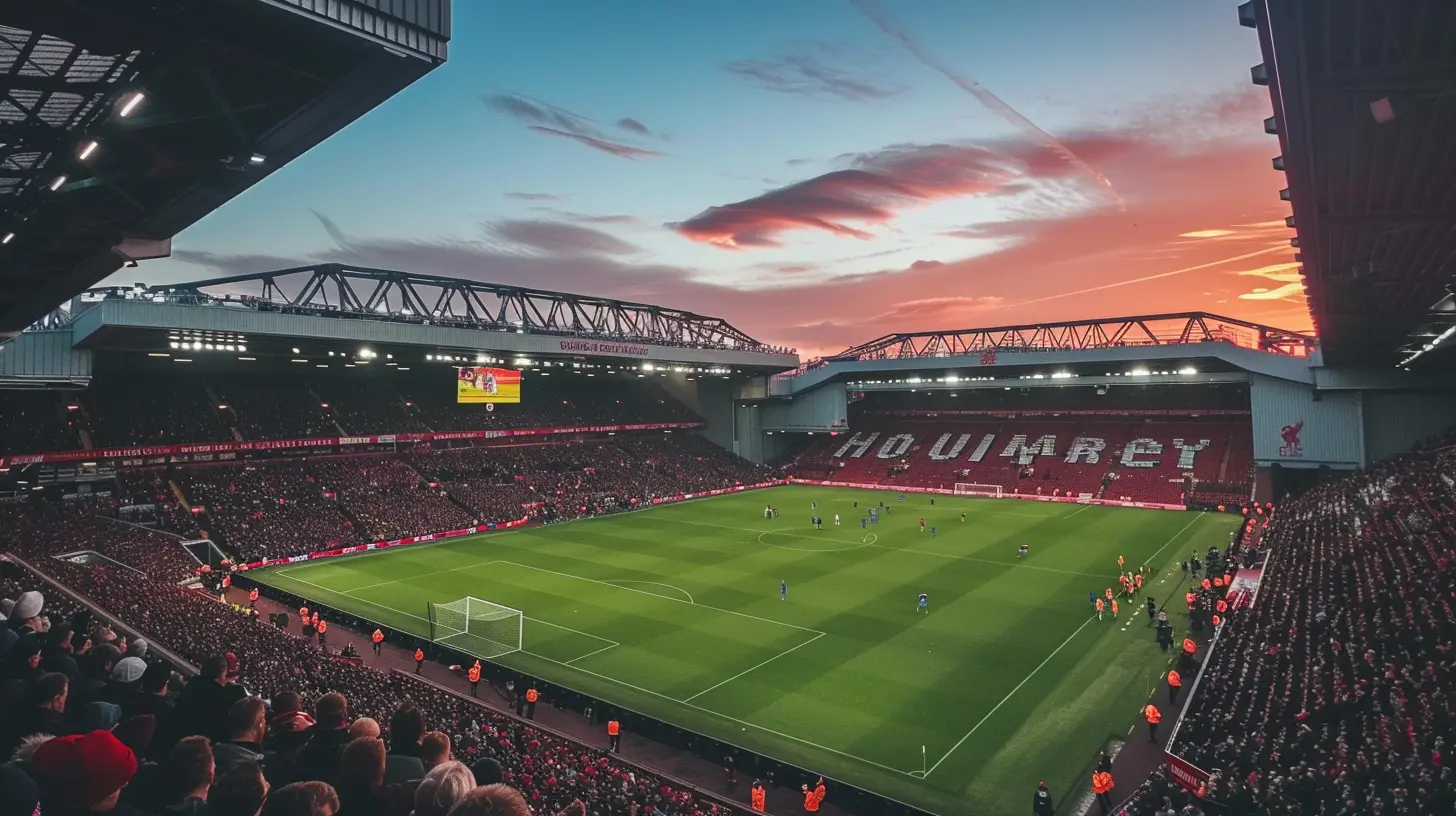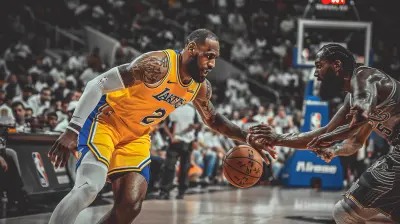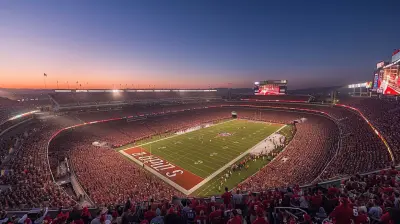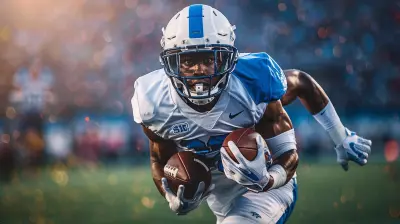17 February 2025
Football, the beautiful game, has always been more than just a sport. It’s a global phenomenon that unites people from all walks of life, breaking barriers of language, culture, and geography. But here's the thing: football has evolved over the years, not just because of the players, the clubs, or even the governing bodies. It’s the fans—the die-hard supporters, the ones who live and breathe the game—who are truly shaping the future of football.
You might be thinking, "Wait, aren’t fans just spectators?" Well, not anymore. The role of football fans has shifted dramatically in recent times. They’ve gone from being passive onlookers to active participants, influencers, and even decision-makers. So, how exactly are football fans driving the future of the game? Let’s dive in.
The Power of Social Media
Let’s face it—social media has changed everything. From how we communicate to how we consume content, and football is no different. Today, fans don’t just watch matches; they dissect every moment, every decision, every goal, and every controversy in real-time, all from the comfort of their smartphones.Fan-Driven Narratives
Remember when football discussions were limited to post-match reviews on TV or in the pub? Those days are long gone. Now, fans are creating their own narratives, using platforms like Twitter, Instagram, and YouTube to voice their opinions, and boy, do they have opinions!Whether it's calling out a manager’s tactics, praising an individual performance, or questioning a referee’s decision, fans have a megaphone like never before. And guess what? These opinions are no longer just noise. Clubs, players, and even media outlets listen. Fan-driven hashtags can trend globally, putting pressure on clubs to make decisions, whether that’s sacking a coach or signing a new player.
Influencers and Fan Channels
Let’s not forget the rise of football influencers and fan channels. Channels like AFTV (Arsenal Fan TV) have become so influential that they can shape public opinion about clubs, players, and management. These platforms give fans a voice, and that voice is loud. Influencers with millions of followers can sway narratives, create buzz, and even start movements within the football community.The ripple effect? Clubs are increasingly paying attention to what’s being said online. Some clubs have even gone as far as to invite prominent fan influencers to official events or give them exclusive access to content—all in the name of keeping the fanbase engaged and happy.
The Economic Impact of Fans
It’s no secret that football is big business. But what people often overlook is the sheer economic power fans wield. Fans directly influence club revenues through ticket sales, merchandise, and TV subscriptions. But that’s just the tip of the iceberg.The Shift to Digital Consumption
With the rise of streaming services and digital platforms, fans are no longer restricted by geography. You could be sitting in Tokyo, watching your favorite Premier League team in real-time, and that’s a game-changer. This shift has led to a massive increase in revenue for clubs as they can now reach global audiences in ways that were previously unimaginable.Fans have also shown that they’re willing to pay for exclusive content. Whether it’s behind-the-scenes footage, interviews, or even virtual matchday experiences, clubs are realizing that there’s a goldmine in catering to their digital-savvy fanbase. The more engaged the fans are, the more money flows into the game.
The Fan-Ownership Model
In some cases, fans have taken things a step further by becoming stakeholders in their clubs. Take Germany’s famous 50+1 rule, for example. This rule ensures that fans hold the majority of voting rights in their clubs, effectively giving them a seat at the decision-making table. The result? Clubs are run with the fans’ interests at heart, creating a more sustainable and community-driven approach to football.Even outside of Germany, there have been instances where fan groups have bought shares in their clubs or even purchased entire clubs to ensure that they are run in a way that aligns with the supporters' values. This trend of fan ownership is slowly gaining traction and could very well shape the future of football governance.
The Rise of Fan Activism
Let’s talk about Super League, shall we? When the European Super League was announced in 2021, fans across the globe erupted in protest. It wasn’t just about football—fans recognized that the move was a blatant attempt by wealthy clubs to create a closed, elitist competition that went against the very spirit of the game.Fans vs. The Super League
Within days of the announcement, fans from all corners of Europe mobilized. Protests were held outside stadiums, social media went into meltdown, and even players and coaches voiced their opposition. The outcry was so loud, so unified, that within 48 hours, most of the clubs involved had pulled out. It was a historic moment that showed just how much power fans hold when they come together.It wasn’t just about stopping the Super League; it was about protecting the very essence of football. Fans reminded the world that football is not just a business; it’s a sport that belongs to the people.
Social Causes and Football
Beyond protests, fans are also driving social change within the game. Look at the rise of campaigns like Kick It Out (against racism) and Rainbow Laces (supporting the LGBTQ+ community). These movements gained traction because fans demanded change. Whether it’s calling out racism in the stands or advocating for inclusivity, fans are pushing football to be better, both on and off the pitch.Clubs have been forced to respond, implementing stricter anti-racism policies, supporting diversity initiatives, and promoting social causes that align with their fanbase’s values. And this is just the beginning. As football becomes more global, fans will continue to push for a more inclusive and socially responsible game.
Technology at the Fans’ Fingertips
Technology is another area where fans are making their mark. From virtual reality (VR) experiences to data-driven fan engagement, tech-savvy supporters are leading the charge in how football is consumed and experienced.Fantasy Football and Data Analytics
Take fantasy football, for example. What started as a fun side activity has now grown into a multi-billion-dollar industry. Fantasy football has made fans more engaged than ever before, as they track player statistics, analyze performances, and make strategic decisions.In turn, this has led to more sophisticated data analytics becoming a core part of the football experience. Fans are no longer just watching the game; they’re breaking down formations, analyzing expected goals (xG), and diving deep into player heat maps. This rise in fan-driven analytics has even influenced how clubs scout players and make tactical decisions.
Immersive Fan Experiences
Then there’s the future of fan experiences. Imagine putting on a VR headset and sitting in the front row of a Champions League final—without leaving your living room. As technology advances, clubs are investing in creating immersive experiences for fans, both in and out of the stadium. From augmented reality (AR) apps that let you interact with live matches to AI-driven fan personalization, the future of football fandom is looking incredibly high-tech.And it’s the fans who are driving this innovation. The demand for more immersive, tech-driven experiences is pushing clubs to embrace new ways of engaging their supporters. If you thought the matchday experience was limited to 90 minutes, think again.
The Future of Football Is in the Fans' Hands
So, what does the future hold for football? One thing’s for sure: it’s in the hands of the fans. The days of passive spectatorship are long gone. Today’s football fans are active participants, influencers, and even decision-makers. They’re shaping the narrative on social media, influencing club policies, driving social change, and pushing the boundaries of technology.Football is, and always will be, a sport for the people. And as fans continue to push for more transparency, inclusivity, and engagement, the game will continue to evolve. Whether it's through fan ownership, technological advances, or social activism, football fans are making sure that the future of the game reflects their values and passions.
In the end, football without fans is just a game. With fans, it’s a movement.












Astranor Collins
Fans are the heartbeat of football; their passion truly shapes the game’s future!
March 29, 2025 at 5:28 AM